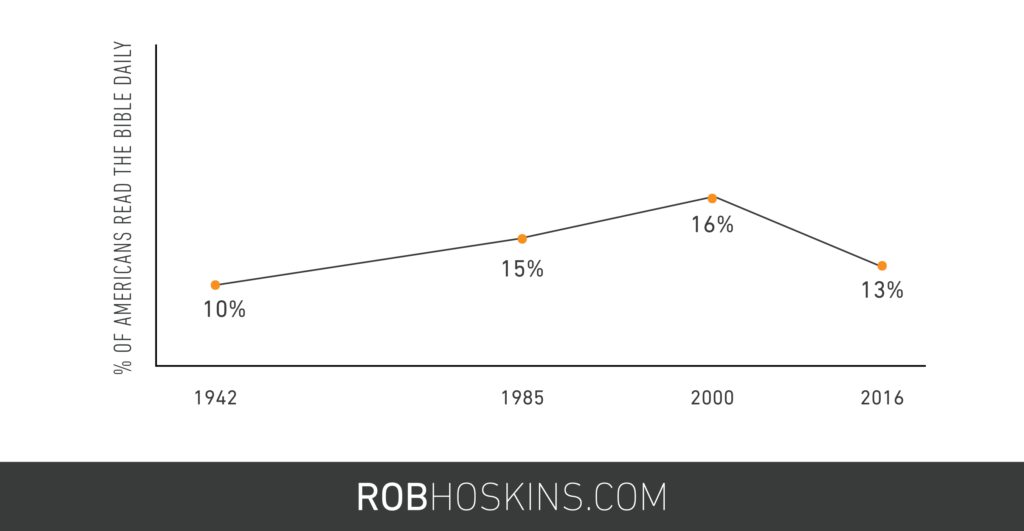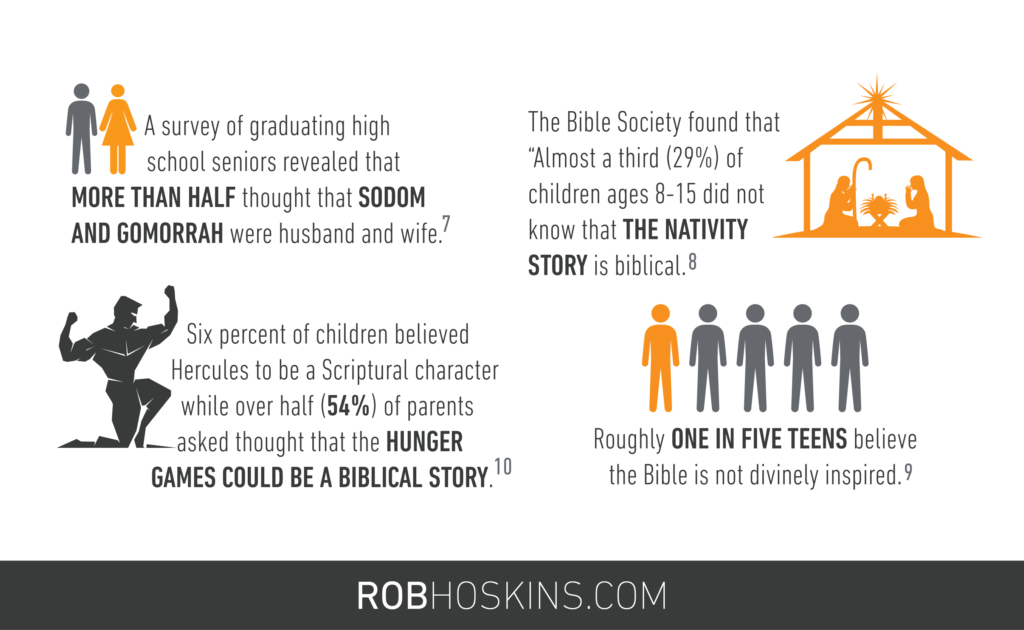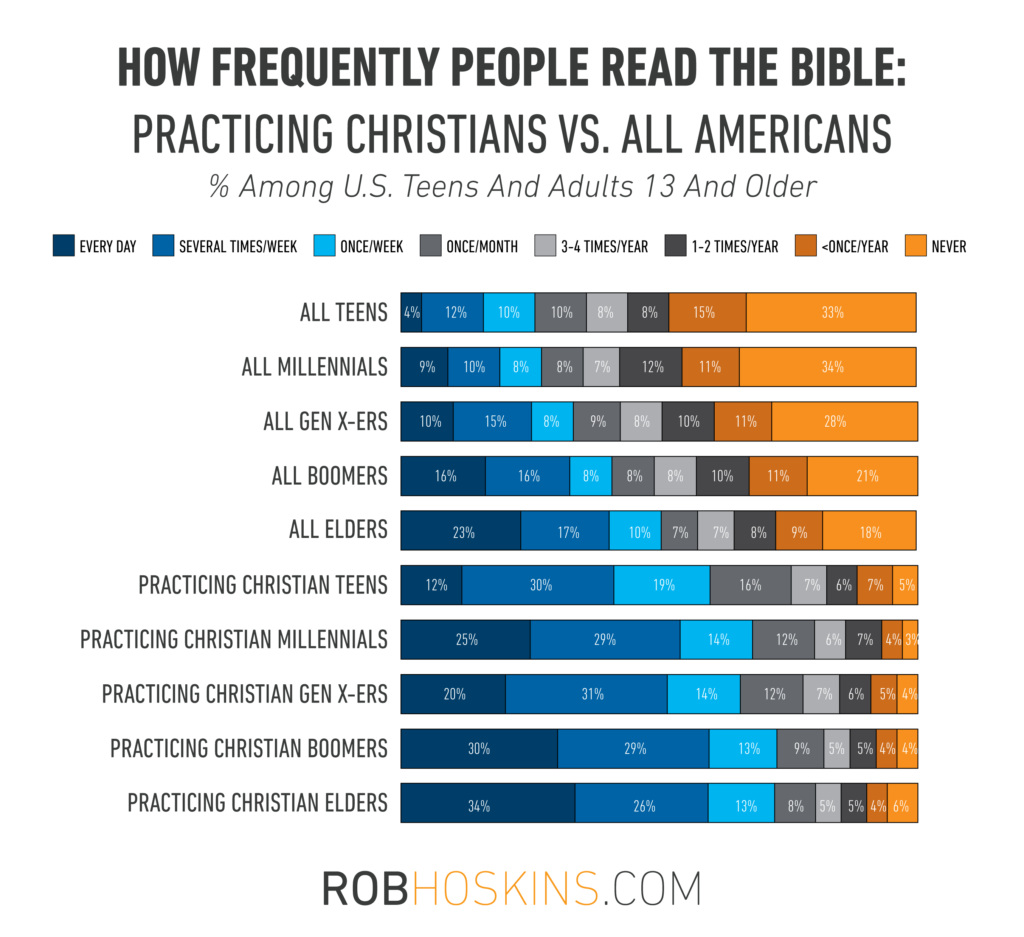Despite unprecedented access to God’s Word—more than at any other time in history—sadly, Biblical literacy is on the decline. Take a look:
1950’s—The post-World War II decade was full of religious vitality, with rapid growth in church membership, especially in the booming new suburbs.
1960’s—During this decade, Americans experienced major change and upheaval that carried over to organized religion. Both Bible reading and weekly church attendance started to slide.
1970’s—The activism of the 1960’s gave way to pessimism, cynicism and disillusionment, with Americans questioning everything, including the Bible.
1980’s—As optimism for the future increased, Americans were far less apprehensive about the immediate future. But that confidence replaced a need to depend on God and Bible reading suffered as a result.
1990’s—Not a good decade for the Bible or morality with headlines full of government ignominy, sex scandals and allegations of abuse in the Catholic Church. The Bible seemed to be out of touch with the way Americans chose to live their lives.
2000’s—Church attendance is up, but Bible literacy and understanding has never been lower. [1]
Holding steady as the best-selling book of all time, skepticism about the Bible grows as engagement with its sacred content decreases.
The 1960’s were a rocky decade and seem to be the start of a steady decline of Bible reading and engagement among young people.
Nearly two-thirds (57%) of those ages 18-28 read their Bibles less than three times a year, if at all.[6]
In our post-modern, post-Christian society, the Bible is considered highly irrelevant. Parents today are failing to share its immutable principles and well-loved stories with their children.
Why is Biblical literacy at an all-time low? In my mind, the answer is simple. You can’t know what you don’t experience.
[easy-tweet tweet=”Consider this an X-ray; we can clearly see what is broken” user=”@RobHoskins” hashtags=”#BiblicalLiteracy”]
This generation needs to engage with the Bible as the epic journey of life that it is. Not as a rulebook, a self-help guide or a therapeutic journal.
“The Gospel is not just the illustration (even the best illustration) of an idea. It is the story of actions by which the human situation is irreversibly changed.”
Lesslie Newbigin, The Gospel in a Pluralist Society [11]
4% of teens today are reading the Bible daily, and only 12% of PRACTICING CHRISTIAN teens report daily engaging in God’s Word.
[easy-tweet tweet=”This generation needs to engage with the Bible as the epic journey of life” user=”@RobHoskins” hashtags=”#Bible”]
Consider this an X-ray; we can clearly see what is broken.
In a post-modern world where the message of Scripture is totally counter-cultural, what are we as individuals, parents and the Church at large doing to challenge this apathetic and dangerous norm?
Read:
The Changing and Challenging Landscape of Youth Ministry Today
Why a Thick Gospel is so Important
Helping the next gen win






